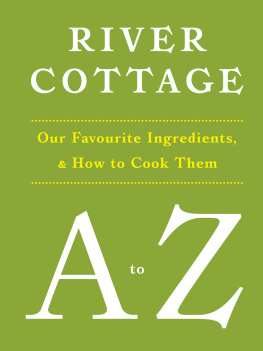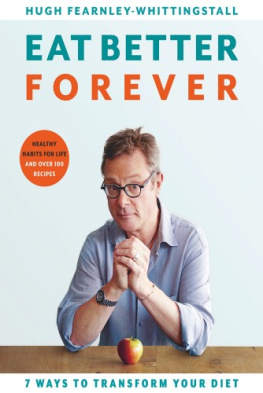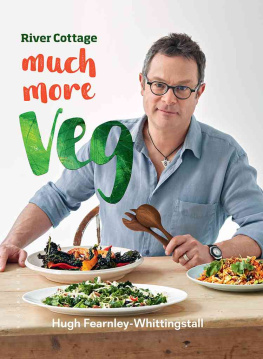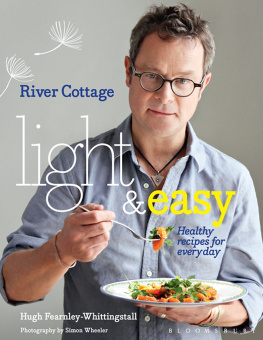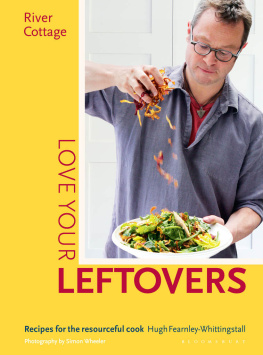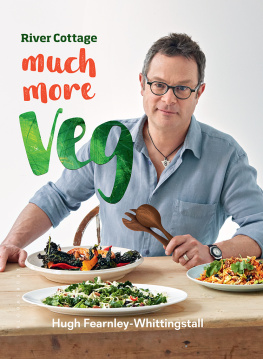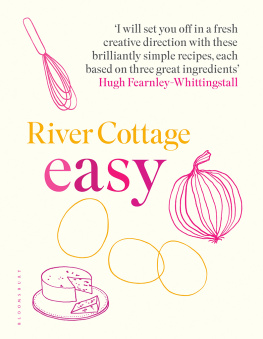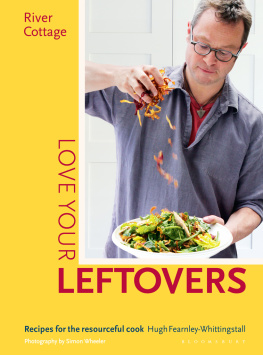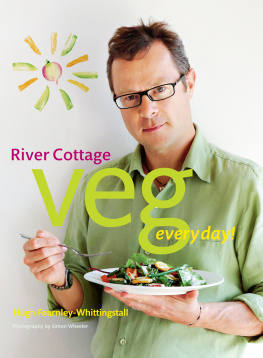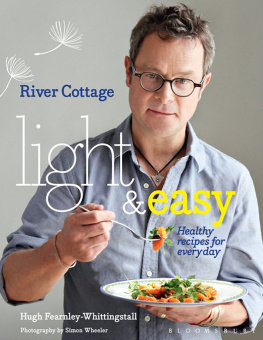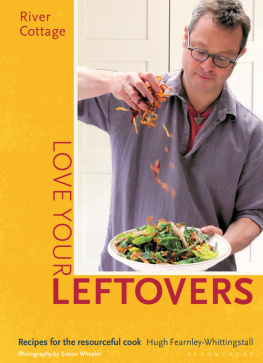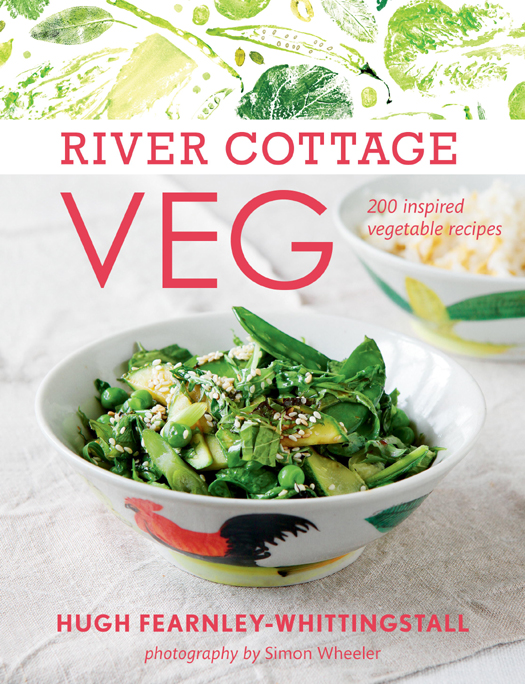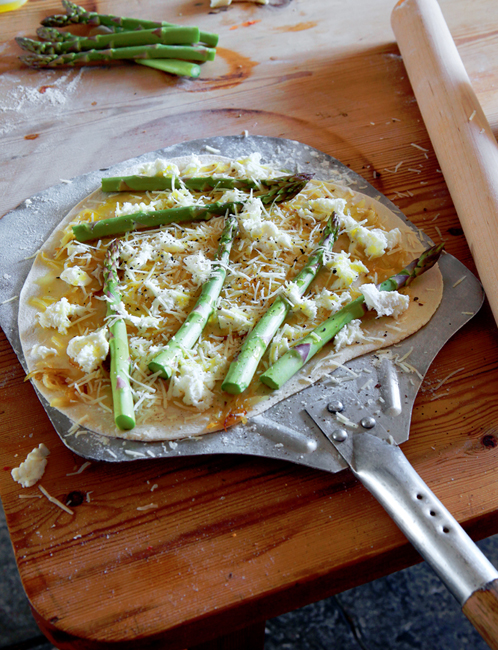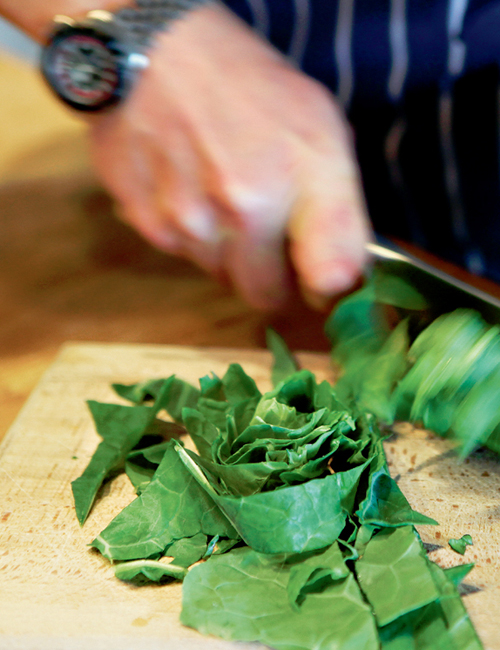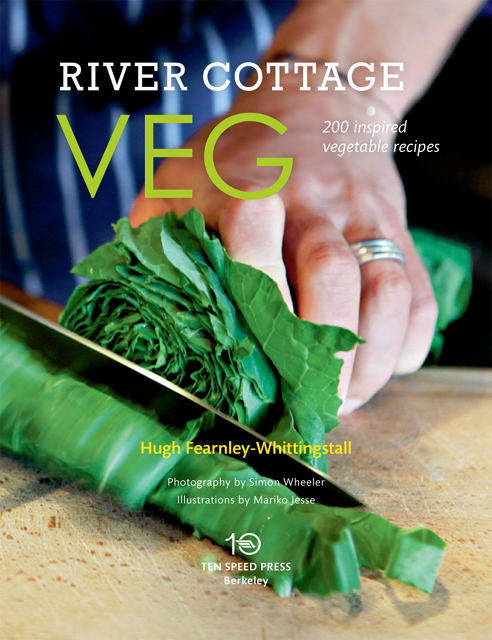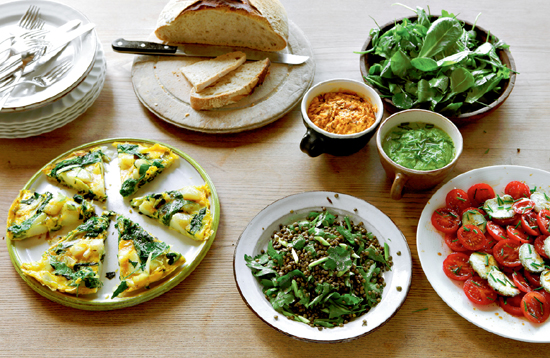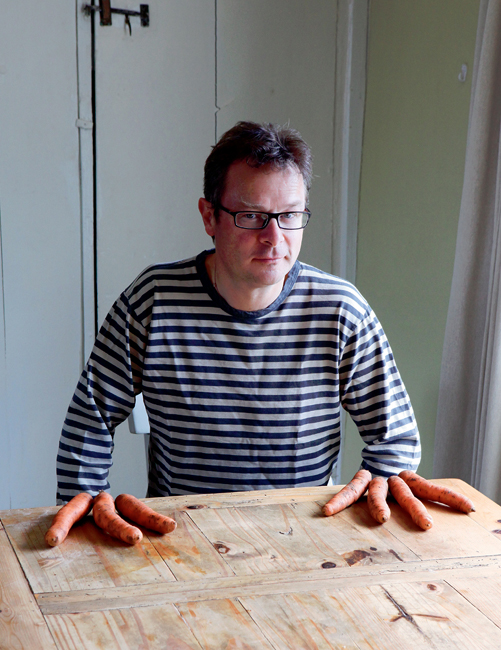All rights reserved.
Published in the United States by Ten Speed Press, an imprint of the Crown Publishing Group, a division of Random House, Inc., New York.
www.crownpublishing.com
www.tenspeed.com
Ten Speed Press and the Ten Speed Press colophon are registered trademarks of Random House, Inc.
Library of Congress Cataloging-in-Publication Data is on file with the publisher.
All recipes are vegetarian. Those marked (V) are suitable for vegans, provided optional nonvegan ingredients are excluded and vegan options for ingredients such as mustard and wine are used.
Clockwise from bottom left:
introduction
This is a vegetable cookbook. Whether or not its a vegetarian cookbook depends perhaps on your point of view and your food politics. Its not written by a vegetarian, or with the intention of persuading you or anyone else to become a vegetarian. But in the sense that not one of the recipes here contains a scrap of meat or fish, then it is indeed quite strictly vegetarian. I certainly hope that many vegetarians will buy it, use it, and enjoy it.
And it is also, I would like to think, evangelical. Call me power-crazed, but Im trying to change your life here. The object of the exercise is, unambiguously, to persuade you to eat more vegetables. Many more vegetables. Perhaps even to make veg the mainstay of your daily cooking. And therefore, by implication, to eat less meat, maybe a lot less meat, and maybe a bit less fish, too. Why? We need to eat more vegetables and less flesh because vegetables are the foods that do us the most good and our planet the least harm. Do I need to spell out in detail the arguments to support that assertion? Is there anyone who seriously doubts it to be true? Just ask yourself if you, or anyone you know, might be in danger of eating too many vegetables. Or if you think the world might be a better, cleaner, greener place with a few more factory chicken or pig farms or intensive cattle feedlots scattered about the countryside. Surely its close to being a no-brainer.
So, to be absolutely clear, all the recipes that follow are suitable for vegetarians. Since I have used dairy products and eggs, they are not all appropriate for vegans. But over a third of them are (those marked (V) ), and another third easily could be if suitable substitutes for butter and milk were used. If youre a vegan, youll know what to do.
I can certainly appreciate that if youve used my books, you may be feeling a bit baffled to be holding in your hand a near-as-damn-it vegetarian cookbook written by that notorious carnivore Hugh Fearnley-Whittingstall. But if you know my work a little more intimately, if youve probed and dabbled beyond the recipes and into the more discursive text, this should come as no great surprise Ive visited this territory before. Only now Im at the vegetable end of the meat argument, and its a very refreshing place to be.
But let me recap my core thinking on this subject anyway Ill try and keep it pithy. In my meat book, I argued that we eat far too much meat in the West too much for our own health, and far too much for the welfare of the many millions of animals we raise for food. I believe that factory farming is plain wrong environmentally and ethically. So it saddens me to say that, despite some recent significant gains in the UK on poultry and pork welfare, the problems associated with the industrial production of meat are, globally speaking, as bad as ever. Ive been similarly forthright about fish. I believe its a wonderful food, which I like to catch and love to eat. But I have also pointed out that we are in ever-increasing danger of eradicating this amazing source of food altogether.
Good reasons, you might think, for becoming an out-and-out vegetarian. But that isnt my plan. I still believe in being a selective omnivore, casting a positive vote in favor of ethically produced meat and sustainably caught fish. However, I now understand that in order to eat these two great foods in good conscience, I have to recognize, control, and impose limits on my appetite for them.
But why, I hear some of you remonstrating, given that I still eat meat and fish, would I want this book to exclude them entirely ? Whats wrong with a soupon of meat and fish? Perhaps, like me, youve already become adept at making a little meat go a long way. Youve embraced the notion that a few shards of bacon, or a sprinkling of chorizo crumbs, or some scraps of leftover chicken, are a perfect way to give a lift to a big salad or add interest, spice, and texture to a creamy vegetable soup; and that an anchovy here and there gives a lovely salty tang (especially, as it happens, to vegetables).
So why will I not allow such sound and thrifty strategies, where a modest amount of meat is used as a perk or spice in a dish, to season and punctuate the vegetable recipes in this book? Because it would be a cop-out, thats why! That approach, useful though it is at times, is ultimately the wrong mindset for serious change. It suggests youre clinging on to meat; that you feel any meal is incomplete without it. And thats the feeling I think we all need to let go of.
The way I see it, if we are remotely serious in our commitment to eat less meat and fish, we will want to make plenty of meals perhaps even the majority of them completely without meat and fish. For many of us, this is quite a big concept to swallow, but I want to tackle it head-on. We may be increasingly aware of the good reasons to eat less meat, but our cooking culture is still largely based around flesh. The idea of a fridge entirely free of sausages, bacon, chops, or chicken can strike fear into the heart of many a cook even a resourceful one. Meat is so familiar, so convenient; its the easy route to something that we instantly recognize as a proper meal. I want to show you how straightforward it can be to embrace vegetables in the same way.
Changing your prime culinary focus from meat to veg will require a shift in attitude but not, I would argue, a very big or difficult one. Its true that if you eschew meat and fish, you have to look at other ingredients with fresh eyes. You have to take a new, more creative approach to them. But once you become accustomed to cooking vegetables as main meals it will soon seem like the most natural thing. This book is your starter pack on that mission.


